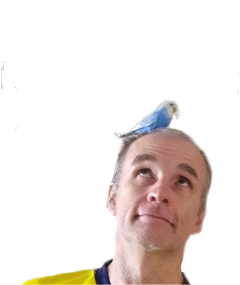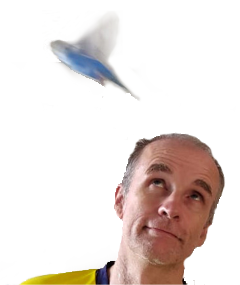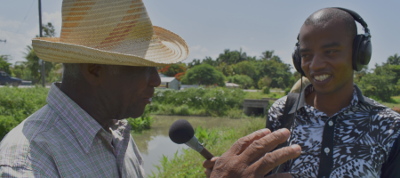Discomfort zone
Aug. 21, 2015
Last week I was talking to Edith Peredo, a young reporter at radio station Radio Teocelo near the city of Xalapa, Veracruz. Someone had just killed the photojournalist Ruben Espinosa who had worked for many years in Xalapa. The killing made international headlines, but it wasn't the first time a colleague of hers had been killed. Fourteen journalists have been murdered in the state of Veracruz in the last five years. Eighty-eight journalists have died in Mexico in the last decade. "Does it affect how you work? I asked her.
"Sure, there's fear," she said, "but what really gets you is the pain and the impotence. And anger too.... I haven't changed anything. I keep doing my job. Sometimes I walk down the street and I feel like someone's watching me, but you've got to keep going."
I left Xalapa just before the violence reached its present level, so I have never faced the risks she knows. But I understand that feeling of "you've got to keep going". Soon after returning to Halifax, I gave a talk about freelancing in Mexico to young graduates of the University of King's College journalism program. I tried to share that feeling with them. I talked about finding stories, cultivating sources and mitigating risks in dangerous situations. "Sometimes there's nothing you can do to anticipate danger. You just have to follow the locals," I said. "After all you're there to report on them. Perhaps you should live like them." Alongside me was a local business reporter who also worked as a communications and marketing consultant. She talked about how to pay taxes, how to earn extra income in PR without compromising your integrity and how to publicize yourself. Her suggestions were just what the students were looking for and at the end of the presentation, all their questions were directed to her.
I have never thought of journalism as a career in the same way that working in accounts receivable or sales is a career. Sure, you need to make a living, but for me, the motivation has always been the adventure, the permanent oscillation between outrage and delight, the thrill of knowing you are on to a story. Above all there is a the honour of being invited into worlds not your own, and the burning, if vain, belief you can make a difference. I'm not sure that was true for the class at King's College. And sadly, neither is it for many other graduates around the world. According to a recent report for the Ethical Journalism Network, journalists are now outnumbered by PR professionals in the United Kingdom, as graduates choose the more lucrative -- and frankly easier -- career stream.
Canada is not Mexico, of course, but there are still things to fight for. For a time after I arrived I sought out young journalism graduates in Halifax, hoping to find kindred souls locked in battles. But in conversation and online, I saw people seeking to build up their comfort zone even further. Certainly they were pleased to be journalists, and tweeted regularly about where they were and which colleagues they were with, and also about the brand new ipads they took to press conferences. But I never saw them use twitter to ask questions, trumpet discoveries, provoke thought, or explain what any of it means to the rest of us. I tried passing on tips -- stories of inequality and government bumbling -- but got no takers. I even offered to be interviewed about a failed new provincial day care program that had left me to taking my child to work every morning. "Sure... " a young graduate told me hesitantly. "if I can get up that early." (He couldn't). Another told me about witnessing an accident caused by Halifax's notoriously churlish bus drivers. She didn't approach the driver. "I didn't want to be that person." And when university students ended a protest march early to make way for a Remberance Day celebration, a rookie reporter covering the event tweeted: "I'm so proud of my fellow students."
In Mexico, protests marches are not token gestures; they are visceral, all-or-nothing struggles for power. The idea that a march would make way for a government ceremony is laughable; that a journalist would commend them for it is unthinkable. In fact, journalists and activists today share many of same risks and walk the same shaky lines. Two months before photographer Espinosa was killed, masked men broke into an apartment in Xalapa and brutally beat eight students whose protests Espinosa had covered. Three were left in intensive care, and reporters and activists in the city were left terrified for their safety. But, as Peredo said, "they keep going." It even becomes a motivation to keep going.
There are many problems with journalism in Mexico. As in Halifax, most crime reporting is just a rehash of police briefings. (Unlike in Halifax, this is for the safety of the journalists.) Corruption is rife, although with an average monthly salary of about $300USD it is a wonder anything gets reported at all. And it is true that not all Mexican reporters have motives that are pure. But whatever else you might say about them, they sure aren't in it for the pension plan.



